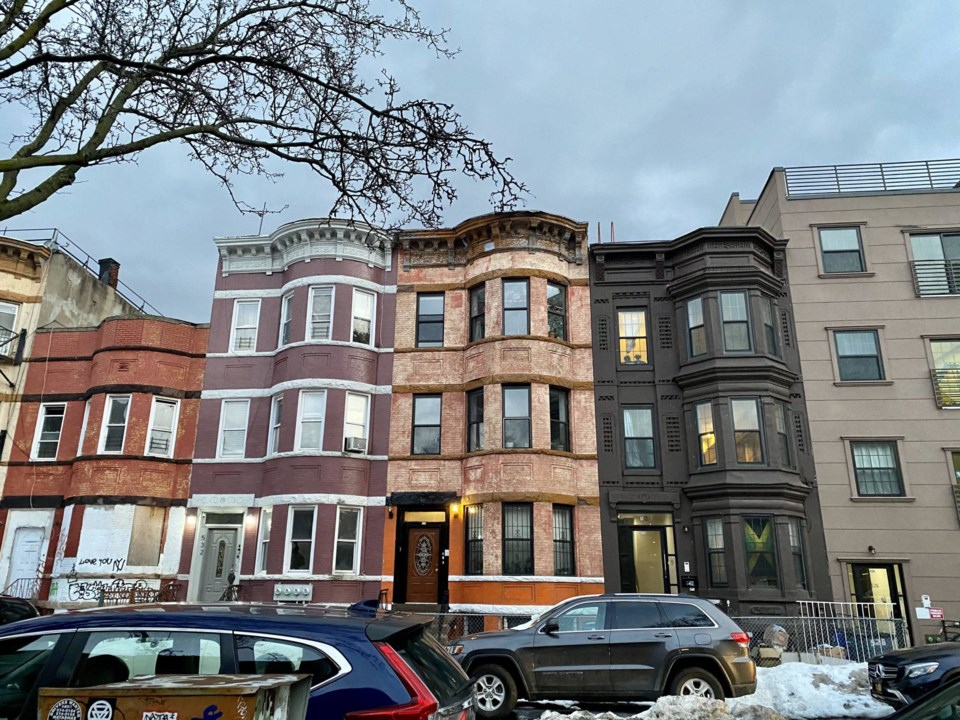The 2021 NYC election polls will open on June 22 for the city's first ranked-choice voting election. In the election, Brooklynites will vote on their next borough president, who serves as an ambassador for Brooklyn residents.
On May 26, seven candidates came together virtually for a debate streamed by BRIC TV and fielded questions on affordable housing, arts and culture preservation and Community Land Trusts.
Community-driven affordable housing
Several candidates expressed plans to allow the community to lead the affordable housing development process.
Current Councilmember Robert E. Cornegy Jr. recognized that systemic racism was an obstacle in affordable housing. Cornegy plans to use his powers as borough president to break down "the racist policies, the redlining, [and] everything that has centralized discrimination and segregation in the borough."
Dismantling racist polices through affordable housing is a focus of Anthony T. Jones. Jones believes affordable housing should "look decent" across Brooklyn communities.
"Brownsville shouldn't look like a warzone and then Clinton Hill and other parts of Brooklyn looks like mansions," said Jones.
Bedford-Stuyvesant native Kimberly Council has broken down a three-part plan to address affordable housing issues. Her focus points are residential development projects, extensive community input and ensuring that zoning changes consider education, healthcare, transit, and other factors.
Khari Edwards' idea of community-led housing encourages community empowerment through education. Edwards plans to educate community board members about zoning to encourage informed zoning decisions.
Lamor Miller Whitehead also hopes to educate community board members in real estate and finance to improve the affordable housing arena.
"We have to build Brooklyn as people first, before we build Brooklyn as a community," said Whitehead.
Zoning and education, however, are just the beginning, according to JoAnne Simon. Thorough planning, Simon believes, will empower communities and nonprofits to build affordable housing units.
Community empowerment is also the focus of Antonio Reynoso, who plans to give voice to community boards by allowing them to develop housing laws.
Supporting Community Land Trusts
Community Land Trusts (CLTs) — nonprofit corporations which hold land on behalf of specific communities — serve as stewards for affordable housing.
Most candidates ensured that CLTs would receive funding under their administration.
To demonstrate his commitment, Jones invited Boris Santos, treasurer of the East New York CLT, to Borough Hall on day one to discuss the preservation of Brooklyn communities.
Reynoso echoed this offer to Santos, adding that he created a not-for-profit acquisition fund that will give money to CLTs. Reynoso hopes to allocate city funding beyond city agencies and push dollars toward the community.
Whitehead's plan is to allow CLTs to "police their own money." Through "discretionary funds," CLTs could develop land and create permanent affordable housing units.
Preserving arts and culture by supporting struggling artists
All candidates recognized that preservation of the arts sector is crucial to Brooklyn's resilience.
Many candidates discussed plans to provide housing or creative space to struggling artists.
Cornegy, for example, plans to enforce affordable housing through artist colonies. The colonies would house artists at below-market rents and utilize the commercial space to showcase their work.
Further, Council plans to create a CLT in East New York that would encourage affordable housing for artists.
Beyond housing, Reynoso wants to allocate funding to grant artists the space to create. He believes artists struggle, in part, due to a lack of production space.
Other candidates expressed plans to allocate arts funding for other uses — namely, the creation of arts organization websites and development of art installations throughout Brooklyn.
Polls open for the general election on June 22. Early voting begins on June 12, and the last day for Brooklynites to register to vote is May 28.




